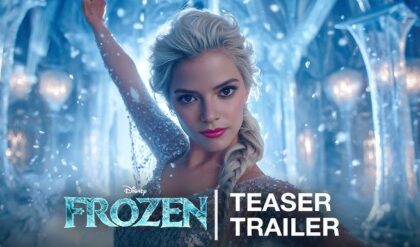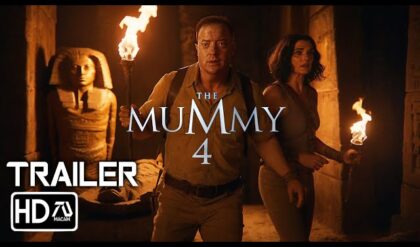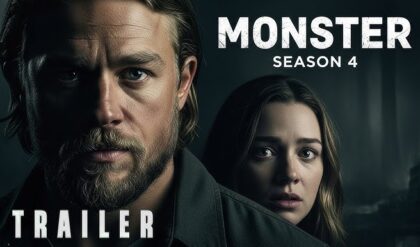Is “K” the answer to all the mysteries in the trailer for the long-awaited sequel?
My first thought, unexpectedly, upon watching the Blade Runner 2049 trailer, was wondering whether or not Replicants can have children.
Beyond the eye-catching visuals on display — another reminder that, in an era of near-monochromatic blockbusters, smart use of color can make a hell of an impact on viewers — the clearest take-away from the trailer is that Ryan Gosling’s character is special, in some way. Something about him marks him as particularly unique and worthy of attention, not only by the audience, but by people within the fictional future in which the movie takes place.
The trailer isn’t even subtle in making sure you’ve noticed this. A character actually says at one point, “I always told you, you’re special.” We get to see Gosling cry over a book with pages torn out of it, while a voiceover says, “Your story isn’t over yet. There’s still a page left.” Gosling, it is heavily implied, isn’t just important to the story of Blade Runner 2049, but to the story of Blade Runner over all. (What else could “Your story isn’t over yet?” mean, if it’s not referring to the property as a whole? Gosling’s character’s story hasn’t even started yet.)

All of which brings us back to the obvious question: Is Gosling a human or a Replicant? But that, surely, can’t be the heart of 2049; it’s literally the take-away from the first movie, and surely we expect more than simply a retread this time around. (Especially as Rick Deckard, Harrison Ford’s maybe-sorta-depends-how-you-want-to-view-it Replicant, shows up again in this movie.) So, instead, the obvious follow-up: Is Gosling’s character Deckard’s son?
That might be too pat a solution, of course. But the notion of a human/Replicant hybrid speaks to the themes raised in the trailer beyond Gosling being special; such a person would disrupt the order spoken of in the first half of the trailer, and break down the wall that, apparently, prevents war between “either side” (humans and Replicants?). Beyond that, a naturally born hybrid would appear to be an answer to Jared Leto’s “But I can only make so many” commentary that opens the trailer. Now, perhaps, he doesn’t have to.
(It’s also possible that Gosling could turn out to be the child of two Replicants; that could answer Leto’s commentary, but not so directly respond to the metaphorical wall separating humans and Replicants.)
If Gosling’s character, who is only called “K” in the information released to date about the movie, turns out to be Deckard’s son, it would also explain just why he’s looking for Ford’s character: He’s trying to find his father. While that would be a somewhat cliched development — do we really need another movie about missing fathers, especially one in which Harrison Ford plays the absent father? K, Kylo Ren and Mutt from Indiana Jones and the Kingdom of the Crystal Skull could form a support group — would it be any more objectionable or well-worn than the idea of a retired cop pulled back into action because of what they know about an unsolved case?
All of this is merely uninformed speculation, of course, provoked by a trailer designed specifically to produce such a response. The trailer for Blade Runner 2049 is purposefully vague and intended to cause discussion about its intent. But could it also reveal connections and elements that will turn out to be integral to the finished movie? We’ll find out on Oct. 6, when the pic reaches theaters.





